By Nancy Mauro-Flude
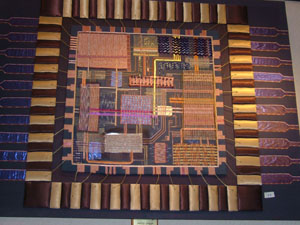
The wall hang looking over our lunch area, a reminder from a time when women were encouraged to enter the IT workforce. Jenny Legge “Micro Circuit” 1985.
Twenty years ago when you were a woman working with technology, there were few women like you, usually if you found technical work, you were shunted to the fringes – you were a token, a sop to charges of sexism. The more you were marginalized, the more you thought about feminism, and the more you questioned your relationship to a field that was dominated by male identities. If you were lucky, you profited from a predictably periodic spasm of media interest in ‘women in technology ‘, encouraged to study computers at school, you were a subject of the appropriate feature documentary. Then you started to crash with the dot.com bust and even Netochka Nezvanova’s web page, the mystery you’ve came to identify with reads “Error: 404”. Yes, those imperialistic dogs have lied to you again. Technology starts to mean less to you and you pursue other interests, you decide to get a more ‘appropriate job’, devote you time to your garden or family. Five, ten, twenty years later, your efforts are forgotten.
Or maybe the sexual revolution has actually taken hold. It’s the year of the woman -again- but this time, females are contending at many levels: through electoral politics, through hactivist intimacy, through the media, though grass roots collectives, in academia, in boardrooms, in theatre, by direct action. A small but determined number of woman have tramped their way toward the top of the business, threatening the bastions of power with their proximity, and another volunteer group started an organisation to combine other disciplines with technology and ICT, such as art, culture and politics engaging experientially with issues surrounding gender and technology.
Females working with technology are no longer accepting tokenisation: angry, enthusiastic and diverse, they understand the struggle for equality. Most importantly, you become part of an emerging dialogue that changes not just conceptions of gender, but changes the technology itself. You love playing with cables, coding and/or programming more than ever, only it’s not just coding, programming or pulling plugs any more – It’s a new movement ‘the third wave of feminism’, and your part of it. Sharing information, making poetry out of the codes, playing with images & ad hoc networks, breaking down stable chains of signification, you are stepping on the posts of life itself! Then you go to the 3rd European Symposium on Gender & ICT: working for Change…
At the birthplace of the computer, and home of the Suffragette movement, women from an array of countries and research backgrounds gathered at the 3rd European symposium on Gender & ICT in Manchester. “It’s depressing!” was the bottom line in the Plenary session because in a twenty year period the proportion of women in the ICT sector is still on the decline, and even more distressing if we were to remember that Ada Lovelace was at the back end of the first computer program. Is a proven fact that women account for less than a quarter of the information and communication technology workforce, even though information technology has spread rapidly through out all aspects of personal and work life.

The slide shows women working as computer technicians in Bletchley Park 1943, a unique time when gender expectations were on the wane, women outnumbered men eight – one. Today, those expectations are stronger than ever; only the packaging has changed. Face it.
Gender and technology at work: experiences of IT professionals
At a moment when we are being told, that women can have it all and are doing better than ever before, in school, university and the workplace there is an inescapable re-inscription of women as sexual objects going on. There are a number of women leaving the IT and fewer women study it at a higher education level. Long working hours and hostile attitudes remain. Prescribed roles are being re-asserted such as the ‘tech savvy geek’ distant, uninvolved, unemotional and uncommunicative threatened by the femaleness of the autonomous, active, desiring neo-liberal feminine subject, preferring the overly accommodating help desk woman. Simple structures maintain these images, allowing their real self to remain a mystery – is she really that sexy? The sophisticated coder with his technical bravado, member of elitist boy club, (not excluding drinking games) helping to create their own ambiguity – are geeks really that misogynist? Why is it the case of when genders find themselves together in certain environments their stereotypes of each other become more pronounced?
Introducing findings from Women in IT (WINIT) a project aiming to improve the role of women in work place, Karenza More, Marie Griffiths and Helen Richardson from the Information Systems Institute, University of Salford reveal that indeed gender blindness around technical and social discourses is a reality in the workplace. Supported by the European Social Funds, focusing on England, via an online questionnaire, in-depth interviews and case studies showed an overwhelming under representation of women in ICT (not to mention the number of women approaching them from outside of England). One of their respondent’s commented, “These social skills are being played out all around me and I think they do nothing but harm.” Perceptions of the working environment in IT included studies about how women found it awkward to raise questions top male managers and others who had an inability to cope with the mind numbing meetings at which you are most likely to be ignored. These were just some of the cases brought to the fore about undermined roles and reinforced stereotypes in the work place.
Debbie Ellen, research fellow at Open University, told of her insightful examination into the convoluted career paths and fluidity of women’s pathway into ICT and how women’s training centers were indeed a pivotal influence for their entry point. She pointed out that the Microsoft Certified Systems Engineer (MCSE) is a ‘key gold’ standard, albeit a lengthy and expensive training, but access to such a course has such an impinging effect of women’s confidence because they gain a greater degree of respect from male colleagues. The underlying issues to this is that the MCSE training does not have any diversity statistics the process of online registration, it does not ask questions of gender, ethnicity or disability during its enrollment procedure. Therefore are no statistics of exactly how many women compared to men have this training, and at this moment, she is aware of only two women in the UK with MCSE status. After her lengthy discussions and many determined efforts to begin dialogue (over a period of eighteen months), about the extreme importance of these statistics with the MCSE UK diversity officer they are now planning to introduce these features in June 2005. This is a small but positive change in a very large corporation!
One advantage of this perspective is that it leaves open a question about the possible existence of a profound cultural shift that such changes have been remarkably difficult to document.
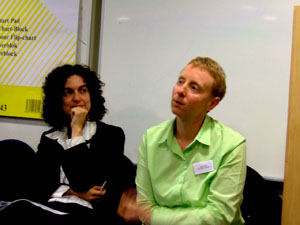

Questions arising to the panel
Q: Are their programs that prepare women for the hostile climate in the workforce?
Q: Have you ever met with the problem of men saying “well it’s up to you, it is up to women to say what you want & give suggestions to us of how we should fix it?”
In ‘Gender, computing and the organisational context: Australian case study evidence’, Chris Diamond (University of Queensland, Australia) discusses hidden discrimination from employers and despite current private and government work-life balance initiatives in the IT sector.
Getting in and Moving Up in ICT: Gendered Social Networks
Mia Gray University of Cambridge UK gave an eloquent presentation on the problem about employment growth in IT professions across Europe and how is not matched by growth in female representation. Women are entering IT profession in declining numbers.
Some explanations that were provided are:
* Family socialisation and role models; nature of home computing
school systems: educational practices, (classroom culture. teacher expectations, absence of positive role models, careers advice)
*Male dominance in computer science, low entry and high drop out rates among women
*Labor market: IT working conditions are hostile to women, stereotypes among IT employers, and masculine culture of computing work.
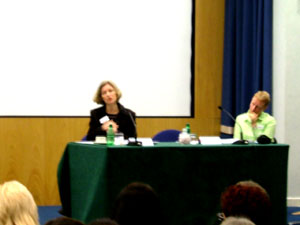
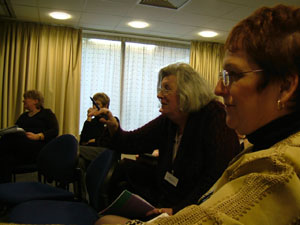
‘Corporate structures and masculine cultures’, according to Juliet Webster is a case of she who runs wins, she who stays home with kids is abided not promoted. The long hours culture for instance the 80-hour workweek is a social convention that clearly has the effect of favoring men. There are strong messages of what kind of commitments there need to be to working hours. Women often take leave from their careers to have babies and raise families, in fact, work less frequently than they have liked in order to do this. This raises a predominant concern for families, and makes IT not attractive for women who in fact deselect themselves.
A telling observation by Chris Diamond is that US multi-nationals are very much present in Europe and Australia, it seems that across these continent employees complain about being available on demand. Many pay conditions and contracts are individualized as trade unions are weak. On the job training and learning is often non-formalised, e.g. web communication, people are asked to do it voluntarily which is common to self-development, and problematic if one is a mother with responsibilities. The profile of the IT professional is young unmarried with no children. Only these people can cope with these types of working arrangements where part time work is very rare.
Panel Questions:
Q: So most of the employees are male young single, what happens when they get older with children? What do men find attractive about this position, what is their bonus?
A: They are in a privileged area of the labor market and gain some level of autonomy in a corporate environment, however this leads into questions of ‘self-imposed exploitation’.
Q: Are corporate redundancy programs discriminating against middle age women? In IT, there are group two points of drop out women in maternity and in middle age. There is an over forty’s niche who stick to sales because they are tired of harassment.
A: Other side of this is that Dell computers seem to encourage women in IT, the director’s wife is on the board of directors & they have a policy for families and commitments.
Q: If the majority of women seem to continue but do not see it getting any friendlier, are women simply putting up with it?
Q: Josephine from the University of East London asks has anyone noticed the attitudes of fathers to children, it seems as though the youngest girl always tends to do well on technical side and is put into an all girls school. Studies show that women in single sex schools do better in technology. This has something to do with the social context in which they are finding themselves.
Q: How can we encourage and identify the ‘returner fall out’ from IT. What targeting can be done? It also has something to do with self-defining, at what level do women think they are working at, which is usually below their professional skill level.
Women’s groups and women’s training: policy and practice
‘Translating theories of gender and technology into practice; Building on research on gender and ICT’s challenges in addressing gender in a community based ICT learning project, Jumpstart
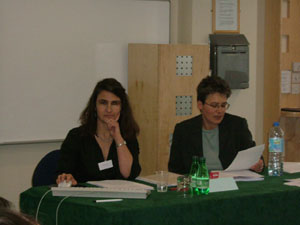
ICT learning activities consisted of ‘taster sessions’ followed by 10 session courses, Marion Schott explains. That during the women’s computer training program ‘Move on and Jumpstart’, in the Tower Hamlets, a very diverse and working class area in London that initially the women in the community’s hands were shaking like hummingbirds above the key boards. This demonstrated a real need for gender specific working practice that gave more space for asking so called stupid questions, making mistakes, breaking hardware and so on. To an extent, they avoided directly addressing gender during the learning process but reflected upon it when it arose rather than make explicit references. However, this type of experiential learning caused tension when they attempted to get funding and acceptance with in an accreditation framework.
Path-breaking research on learning shows that expectations heavily influence performance, particularly on tests. If society, institutions, teachers, expect (overtly or subconsciously) that girls and women will not perform as well as boys and men, there is a good chance many will not perform as well. At the same time, there is little evidence that those scoring at the very top of the range in standardised tests, are likely to have careers that are more successful in the technical sciences. Too many other factors are involved. Finally, well-documented evidence demonstrates women’s efforts and achievements are not valued, recognized and rewarded to the same extent as those of their male counterparts.
Understanding the role and use of Information and Communication Technologies by Women’s Organisations – Evidence from research
Leigh Keeble (University of Teesside, UK)
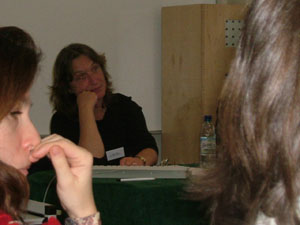
Regarding the value of ICT to women’s voluntary services Leigh Keeble discusses a group that set up a website representing a community women’s domestic support service and crisis centre. The amount of work generated and the response was so overwhelming that they were serious considering taking the site down. Providing front line services to women in need by a website raises expectation of women who need that support. Often volunteers were not trained enough to deal with the emails and calls. Resources needed for staff to support development are lacking. Is ICT adding value to the project making it less local and creating more work they cannot do? In this case, the notion of the community seems contradictory when there is no budget. Leigh Keeble discussed how ‘the community sector struggles to engage and embed information and communication including how women are more likely to be the main users of public services therefore organisations need to be engaged and skilled in accessing and maximising electronic service delivery’.
So what is the agenda about gender, we must carefully avoid stereotypes, be alert to forms of subtle discrimination, and do everything we can to remove obstacles for clear responsive communication successes. Here, stories and papers, mounted challenge after challenge to the technical status quo, not excluding elements of passion, social change, and not forgetting that the pleasure principle is as potent as anything else in work!
Innovative New Media Training and its Effects on Women’s Lives, by Martha Walker
A founder of the Manchester Women’s Electronic Village Hall, (WEVH) Martha walker discusses that that women are so much more willing to share their information and learn in discrete environment where there is a sign of trust and respect in an all female space. Breaking the barriers between women, computer and information technology in the Positive action program at the WEVA they provided financial and practical support to women trying to cover come the obstacles they face when accessing education. This includes support for childcare, travel, and flexible training program’s. She found that these women-only workshops were very effective and gave women confidence to carry on in their computing endeavors. The WEVH is unique because they specialise in how Information and Communications Technology relates particularly to women.

Over the broad range of perspectives discussed, the key to addressing the skill shortage, now and in the future, is to encourage more women to enter the ICT sector. However, future difficulties should not be glossed over in order to encourage women moving in to the ICT. The consensuses in all these contemporary perspectives on women working with computers and information technology, is a real need for women to learn and connect in an all female environment.
It is true that a lot of us often choose to live and move outside the sphere of patriarchal defined and approved self-expression. In the conference during lunch break, Martha says that she doesn’t really like these sterile academic environments, it’s awful looking at the glaring lights, I don’t understand why are we having the symposium here. I reassure her, I know what she meant, and encourage her that does not stop me from coming to these environments. I like being in a weak position and making it strong. I point out the micro-circuit wall hang, and think to myself about the lonely and distressed coder girl I saw at the Ten Years of Debian celebration last year.
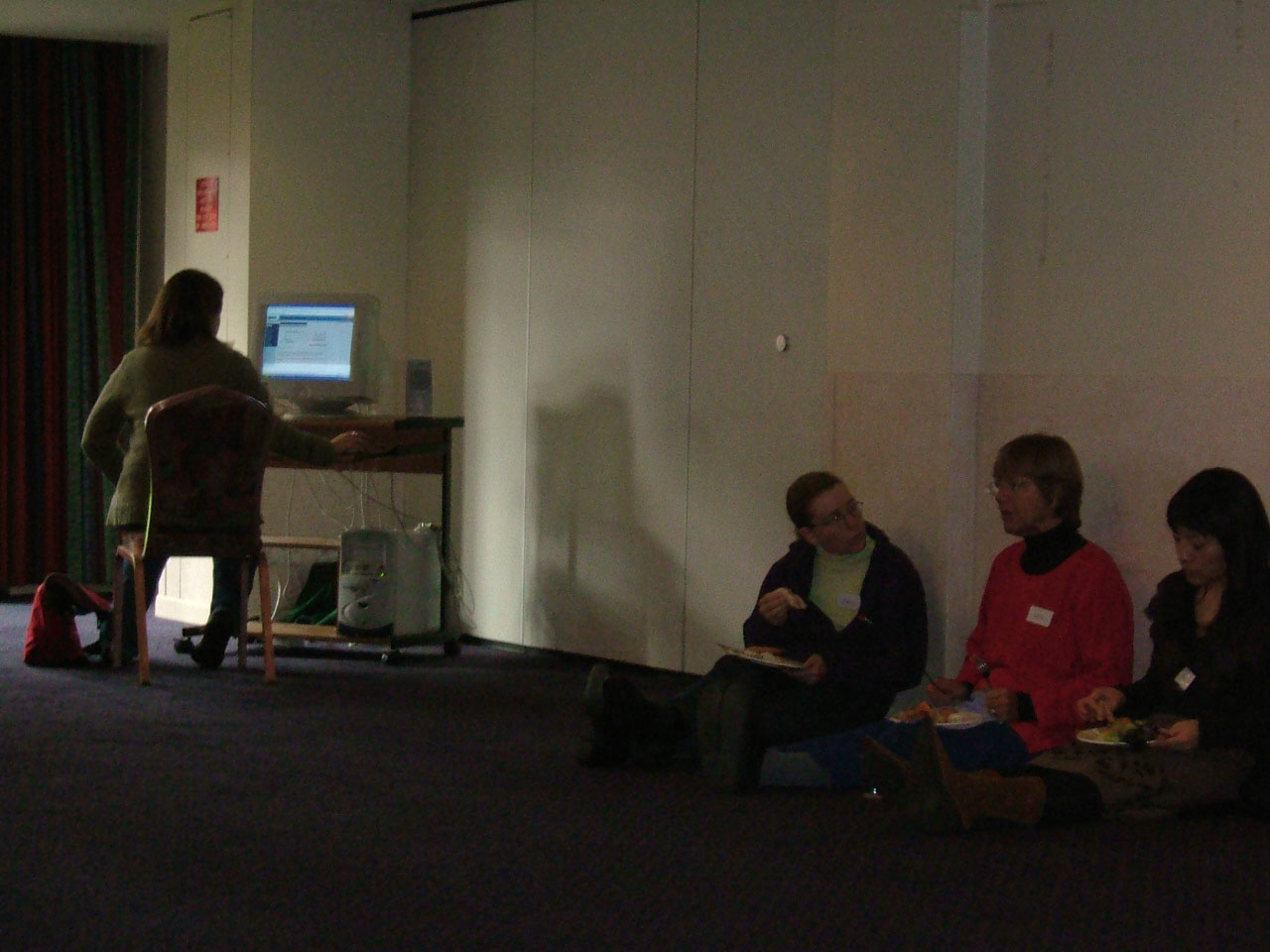
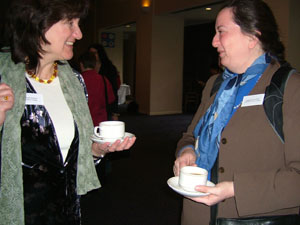
Let’s have a cup of tea now shall we?
During a cup of tea in the break between sessions, I have a chat to Alison Hull from Newcastle, who works in computing education. She tells me how she noticed during the Database design exam that out of 104 students, eight were women.
ICT and equality discourses: European policies and practice
“It is difficult to predict the effect on gender equality of this novel policy implementation, which requires every Integrated Project (IP) and Network of Excellence (NoE) to have a gender issues plan. These plans are twofold: consortia are asked to describe gender actions that will take place to support women within the project, and encourage more females to participate in the group; and are expected to consider the impact their research will have on gender equality.” Gender Mainstreaming in FP6: experiences from an IST project Rosa Michaelson (University of Dundee, UK)
There is no female science waiting in cupboard to be discovered. We have to make it happen. – response to a question about the FP6 Gender Mainstreaming policy, Nicole Dewandre, Director of the Women and Science Unit, 3rd Gender Equality in HE Conference, Genoa, 13-16 April, 2003 (referred by Rosa Michaeslon during her talk).
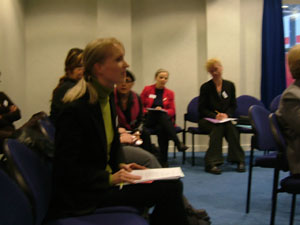
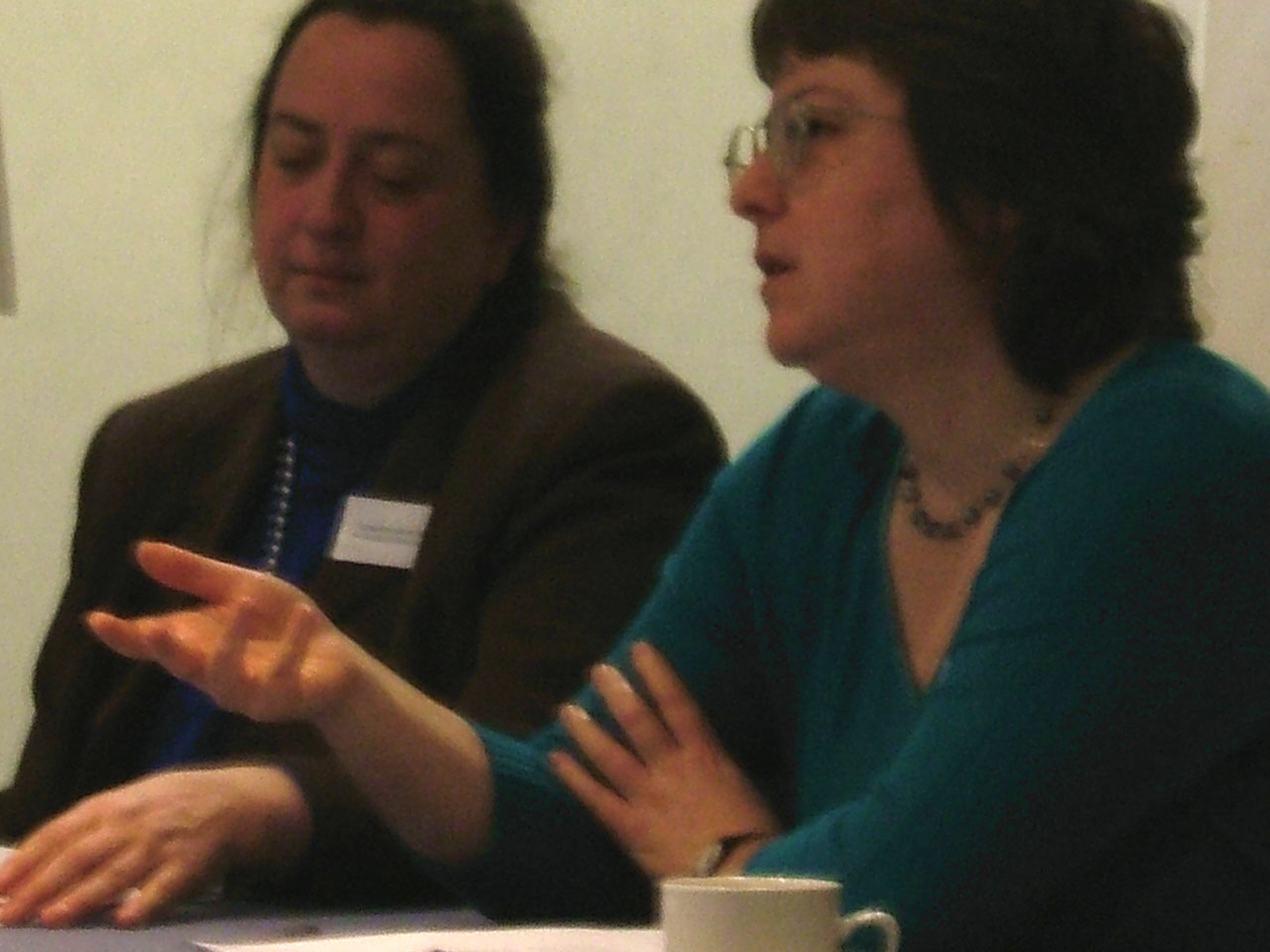
Josephine Anne Stein (University of East London, UK) presented the paper Exposition or disappearance? Ex/Inclusivity of Gender in ICTs from a European perspective.
European policies on gender although generating many hours on the pay slip of policy makers in the EU, and significant pages of discussion and analysis, are ephemeral constructions that scarcely have a life outside theoretical indications.
Josephine Anne Stein insisted that there needs to be a reality in addition the rhetoric, the organisational practices and policies look good on paper but the social processes are lagging in Gendered notions of skill and treatment in IT work and EU policy.
We must continue to address the multitude of small and subtle ways in which women and infect, people of all kinds are discouraged from pursuing interest in technical fields. Society benefits most when we take full advantage of the technical capability among us. It is time to create a broader awareness of those proven and effective means, including institutional policies and practices, which enable women and other underrepresented groups to step beyond the gendered barriers in technology.
The fields of equality and the analysis of gender is revealing, each level in its own field of investigation and/or action, and whose needs with technology are varied. Notwithstanding the need to find work in contemporary society without gender bias included.
Seems like their needs to be more of speaking our mind, maintaining our independence by trying to confront men at their own level. Does this mean we should butt in with our opinion and enjoy their shocked reactions, or get dicked around by business people, be treated like a sex object, then succumb to the long hours that keep the workers under control?
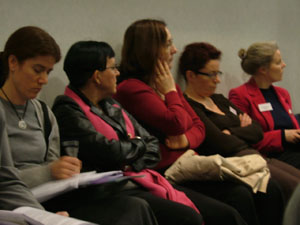
In order to have less regulated access to knowledge, there needs to be consideration about ways to make training and careers more compatible with lifestyle and/or family life and gender. By actively exploring ways to enhance flexibility and support, trying to balance career and family and/or lifestyle, through such measures as part-time work as a norm, enhanced leave, better childcare options and more attention to gendered based learning environments. These and other steps should all be part of a broad-based and sustained effort to achieve a vital goal we all share accelerating the advancement of women technology.
Very early the next morning I have a flight back to Amsterdam, I return my 3 Pin ICE Jack UK Power plug to the night porter, he is looking for my 5 pound deposit. The hotel receptionist – a woman, the previous day carefully placed it in an envelop with the wrong room no# on. Having trouble finding it, “Women are only good for one thing” he tells me with a charming smile. I stare in disbelief at him and casually check to see if I still have my symposium badge on my jacket (fair enough such a clique` comment could be made in irony to someone that is going to such a gendered Symposium).
But I don’t!
Shocked, I did not know whether to cry or keep ignoring like ‘business as usual’, but then I just feel incredibly angry. It took a long time to resolve that incident, because it really made me feel sick, violated, like walking into a computer work place to ask a question, and having some hacker steal your packet of cigarettes. Or screwing up your latest flyer about women & technology in performance, throwing it on the floor in front of you and his ‘techy’ mates.
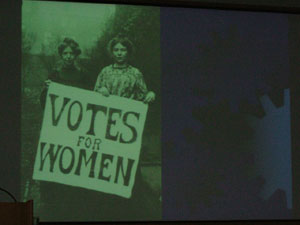
Computer and media technology play a major role in our daily lives. Women are more or less excluded from production and development of information technology, they participate predominantly as passive consumers. To solve technical problems women often rely on external help, such as a (male) friend, or the help desk of a corporate enterprise. Many women are perfectly capable of solving computer related problems, but often lack knowledge and access to peer networks. To suppose that this has not resulted in fewer discoveries and other breakthroughs by the human race as a whole is delusional. Nevertheless, to posit that men perform technical roles better than women because of genetic differences, i.e., in the midst of the social and cultural forces that drive human endeavor, can only be considered another example of the discrimination, which continues to persist today. “A rose by any other name” is still a rose…

